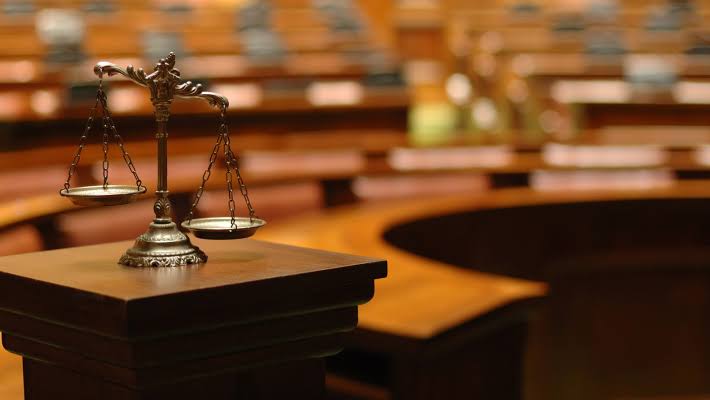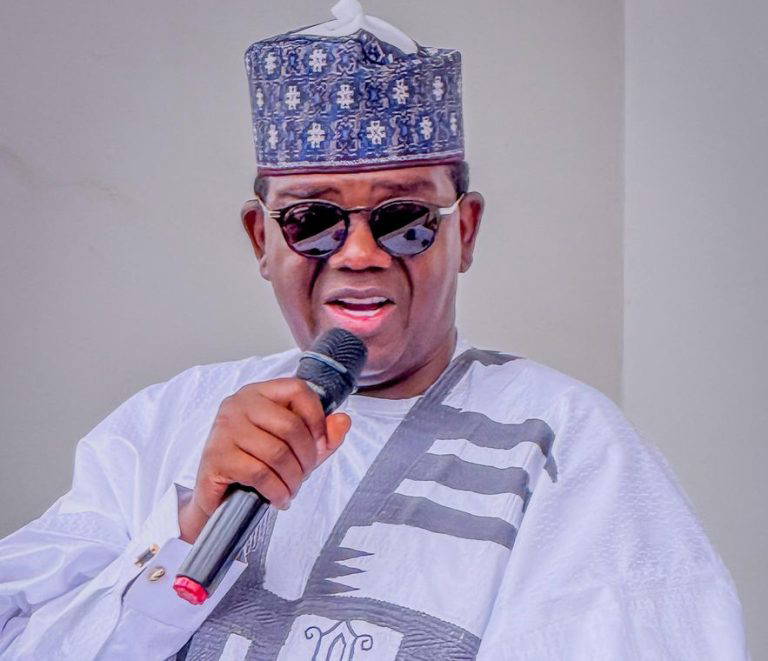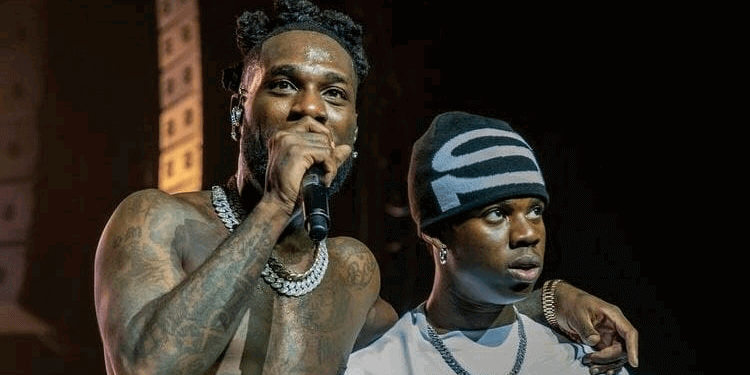In a major development, the Federal High Court in Abuja has taken stringent action against individuals and entities related to the #EndBadGovernance protests that swept across Nigeria for ten days. Specifically, the Justice Emeka Nwite-led court froze 32 individual and company bank accounts in connection with the protests pending investigations and possible prosecution. This is a wide-reaching decision issued in compliance with concerns placed forward by the Nigerian government on the funding of activities seen to be against the security and stability of the state.
The court’s decision came on an ex-parte motion filed by Ibrahim Mohammed, counsel to the Inspector-General of Police (IGP). The application, filed on August 20, was brought before Justice Nwite, who issued the order to freeze the accounts. He ordered the banks to put a Post-No-Debit (PND) restriction on the accounts, pending further orders of the court, while still welcoming inflows into the accounts. More so, the banks are to stop any form of transactions coming through the Automated Teller Machines on the accounts and also to arrest the one who intends to carry out such transactions. On such an arrest, the arrest is to be communicated to the Nigeria Police Force immediately.
Justice Nwite’s order, although made on Thursday, was however only made known when it was sighted in Abuja, in a certified true copy of the order, by NAN, on Sunday. The ruling is indicative that it is perceived as a critical move to block the suspects’ funds that could be leveraged to undercut ongoing investigations and any resultant prosecutions brought on.
The accounts said to have been affected are domiciled in several financial institutions operating in the country, including major banks such as Fidelity Bank, Access Bank, United Bank for Africa (UBA), among others. The order listed a part of the following accounts:
4010073491 (Fidelity Bank), 1255130019 (Access Bank), 0006084167 (Abbey Mortgage Multipurpose Bank Plc), 0821931299 (FCMB), 1012007655 (FCMB), 0000575573 (A AG Mortgage Bank Plc), 1007871587 (UBA), 2037117333 (UBA), 5421031104 (ECOBANK), 0024541201 (Union Bank), 1022899050 (UBA), 8755008491 (Branch International Services Ltd), 5630208636 (Fidelity), 4936992542 (Fairmoney Microfinance Bank), 8755008499 (Branch International Financial Services Ltd), 2088228208 (UBA), 2115678044 (Zenith Bank), 3041823452 (First Bank), 1011828445 (New Edge Finance), 3024402748 (First Bank), 0161502459 (GTBank), 0040580047 (Access Bank), 0250291788 (Wema Bank), 6112464260 (Branch International Financial Services Ltd), 1000774097 (Sparkle Microfinance Bank Ltd), 3434649965 (Fairmoney Microfinance Bank), 2013556714 (KUDA Microfinance Bank), 3104962864 (Polaris Bank), 6112464267 (Branch International Finance Services Lit), 8137051249 (OPAY), and 8137051249 (PALMPAY).
These are accounts that belong to diverse people and organizations. These are that of PA.LIN.HO Global Service Ltd, that of Obidient Movement Multipurpose Cooperative Society, and that of the Great Communicators Champion Multipurpose Cooperative Society Ltd. The application by the Inspector-General is marked FHC/ABJ/CS/1219/2024. It has been filed to cite these named corporate entities and others as respondents, and it goes further to claim that money in the accounts of these entities was used to sponsor activities that present a real threat to Nigeria’s national security.
Both the Nigerian government and the account holders peg the failure of these account holders on serious criminal activities including the financing of terrorism, treasonable felony, cyber-bullying, and cyber-stalking. Speaking on behalf of the IGP, the counsel, Ibrahim Mohammed said the funds in the accounts were dedicated to financing illegal acts targeted at disintegrating the Nigerian State.

According to him, the accounts were tied to several crimes, such as criminal conspiracy, and were used in promoting terrorist acts. He said the funds were being transferred outside the shores of Nigeria unlawfully to finance actions against the sovereignty of Nigeria. He said that such actions included triggers that some people were also trying to host another country’s flag, which he said amounted to a case of compromising the territory of Nigeria, a charge falling under treasonable offences.
The supporting affidavit, deposed by one Detective Gregory Woji attached to the Force Criminal Investigation Department, gave details of the preliminary investigations. Woji said some suspects were already arrested, and their arrests showed a rather large network of financiers recruiting people for civil unrest, mayhem, and destruction of property. These acts, according to Woji, are aimed at disrupting the democratic process in Nigeria.
One of the most worrying disclosures in the investigation, as reported by Detective Woji, regards the fact that these are actually sponsored by foreign nationals. Woji states that preliminary indications lead to foreign operatives being one of the principal actors involved with what the Nigerian authorities are engaging with in terms of activities that are tantamount to a plot for treasonable felony and financing terrorism in the nation. This revelation added a layer of international complexity to the case, indicating that the activities being alleged may now not only be a reported domestic issue but also one that has domestic connotations with wider geopolitical implications.
This has, however, developed the concern over internal national security and the potential of external input to escalate domestic turbulence. In this regard, the extent of the investigation proves how deeply the Nigerian authority is treating the issue and how far it is prepared to go to ensure national security is not compromised.
The legal background to the freezing of these accounts by the court can be found in a number of Nigerian laws, particularly the Terrorism (Prevention and Prohibition) Act, 2022. Count one of the charges brought against the accused persons vide this charge sheet alleges their commission of offences created under many provisions of the Terrorism Prevention and Prohibition Act and other multiple provisions of both the Criminal Code Act and the Penal Code Act, pertaining to such crimes as terrorism, treason, and related offences.
The court’s ordering for PND accounts and to sanction the arrest of the account owners abides with the provisions of this legislation as there is room for the provisions of preventive measures in occurrence of suspects being involved in serious crimes in the state, with the main intention of making sure that no furtherance of the alleged illegitimate activities takes place during the investigations process.
The ruling of Justice Nwite further emphasizes the court’s position as having considered the danger that could be posed by allowing free movement of such funds believed to be gathered from criminal activities. The freezing of those accounts would disrupt the financial network that could have geared towards the perpetration of any other crime, thus saving society from acts of crimes and maintaining the integrity of the active investigation.
The #EndBadGovernance protests, to which these accounts have tentatively been linked, became a watershed moment in the recent history of Nigeria. What started as a peaceful demonstration disapproving of the perceived ineffectiveness and abuses occurring with the country’s government started to pick up momentum and drew in support from various strata of Nigeria’s multi-ethnic society. This included gaining notoriety on the international stage. The protests also culminated in periods of confrontation with security forces that brought violence, arrests, and general agitation.
The Nigerian government has shown no softness towards anyone whom it considers would be responsible for causing or supporting such upsurges. It is part of a general crackdown to freeze bank accounts that are believed to be supporting the protests in general and contain dissent and forestall more bouts of mass civil disobedience. While the stand of the government remains that these are measures that are critical to the maintenance of law and order, the critics are of the opinion that this indicates a wider attempt to suppress legitimate dissent and attempts to clip the rights of the citizens to protest.
For those human beings and businesses whose accounts have been frozen, the ruling has far-reaching implications. Apart from the immediate financial implications, freezing of these accounts basically locks these people and companies out of the formal economy, thus locking them from executing any form of business transaction or any other financial dealing on an individual and commercial level, including being able to pay employees, satisfy contractual obligations, and even accomplish basic personal needs.
More importantly, the linkages being created with the stigma of terrorism financing and high treason hang on the heads of the accused, and if cleared eventually, it could have irreparably damaged their name and livelihood.
For companies, especially those that deal with cooperative societies or financial services, the freezes on accounts could paralyze their operations and erode confidence with their customers and other partners over time. In return, they risk insolvencies, lawsuits from angered parties, and finally the collapse of the business.

Thereafter, in the course of investigations, financial transactions under the frozen accounts will be micromanaged. All roads will tend to trace the source of the monies, the connections to abusive ventures, or the role played by the individual and entities in the said activities.
If evidence will be hard enough, the Nigerian authorities shall follow the up prosecutions, with potential serious penalties on the culprits, long prison terms, heavy fines, or permanent asset forfeiture. However, the legal process shall be long and finally meet the court’s rulings on the various charges.
The legal battle facing them ahead will not be easy, and they will really have to put up an able defense that is strong enough to counter the allegations thrown at them. This probably means trying to fight the evidence adduced by the prosecution and claiming that the freeze on the accounts was unwarranted. The stakes are very high and the outcome will be observed by both domestic and international observers.
Not everyone is supporting these narratives, as they do not augur well for the collective interest in the objectives of social change activists. As the investigations continue and legal tussles proceed, it is only fair that this case forms part of the litmus test to measure Nigeria’s adherence to justice and upholding the rights of its citizens despite huge challenges. Still, it is an open question whether this crackdown will ultimately renew public confidence in Nigeria’s democracy or further erode public trust in public institutions.
SOURCES
- https://dailytrust.com/court-freezes-32-bank-accounts-linked-to-endbadgovernance-protest/#google_vignette
- https://thesun.ng/endbadgovernance-court-freezes-32-individuals-coys-bank-accounts/
- https://www.vanguardngr.com/2024/08/court-freezes-32-accounts-linked-to-endbadgovernance-protests-full-list/amp/




